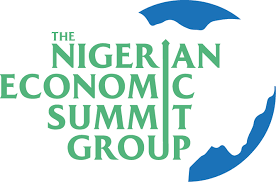The Nigerian Economic Summit Group (NESG) has raised concerns over the limited market access available to Nigeria’s Micro, Small, and Medium Enterprises (MSMEs), despite their substantial contribution to the country’s Gross Domestic Product (GDP). The NESG made this assertion during a virtual event held in preparation for the upcoming 30th Nigerian Economic Summit (NES#30), emphasizing the critical role that MSMEs play in Nigeria’s economic landscape.
According to the NESG, MSMEs in Nigeria, which number over 39 million, employ more than 80% of the nation’s labor force, account for over 95% of businesses, and contribute approximately 46% to the GDP. Despite these impressive statistics, the group highlighted that the sector continues to struggle with productivity and market access challenges, limiting its ability to fully drive development, innovation, wealth creation, job generation, and poverty reduction.
Ms. Amaka Nwaokolo, co-Facilitator of the MSME Community of Practice, underscored the urgency of addressing these barriers in her opening remarks. She noted, “Despite Nigeria’s more than 39 million active Nano, Micro, Small, and Medium Enterprises (NMSMEs), which employ over 80% of the nation’s labor force and contribute significantly to the economy, their productivity and access to market remain significant challenges.”
The NESG’s concerns come at a crucial time as Nigeria grapples with economic uncertainties and a growing need for sustainable development. The group called for coordinated efforts to improve the operating environment for MSMEs, enhance their access to local and international markets, and provide the necessary support to enable these businesses to thrive. Such initiatives, according to the NESG, are vital for unlocking the full potential of Nigeria’s youthful and entrepreneurial population, which is key to driving the country’s economic growth and reducing poverty.
As the NES#30 approaches, stakeholders are expected to deliberate on strategies to overcome these challenges and ensure that MSMEs can play a more significant role in shaping Nigeria’s economic future. The summit will likely focus on creating policies that foster a more inclusive economy where small businesses can flourish, thus contributing more effectively to national development.















